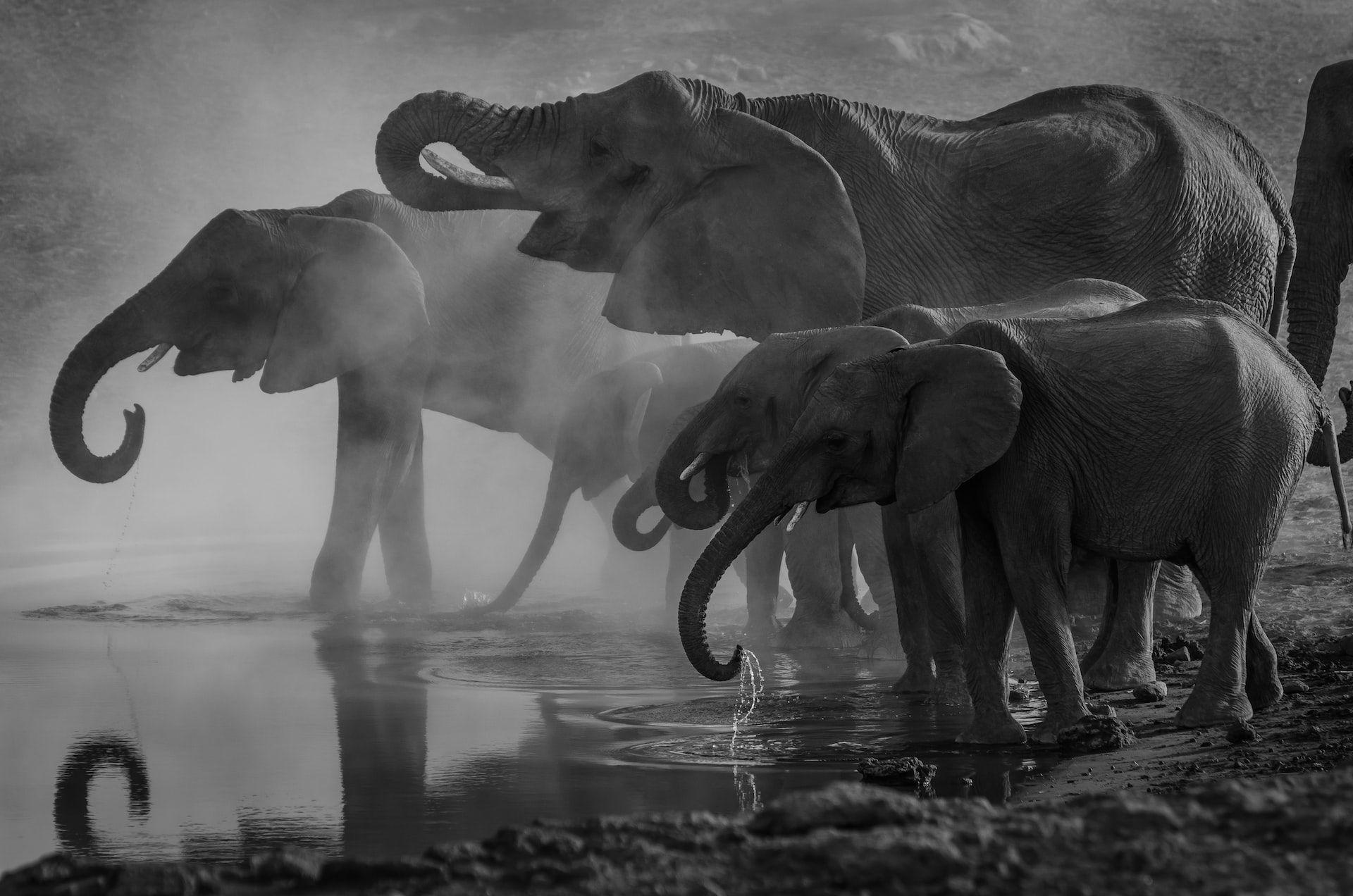· 4 min read
This message is a modified version of the original speech delivered to the China Biodiversity Conservation and Green Development Foundation for World Elephant Day on August 12, 2022.
Good afternoon and a big thank you to our good friends and colleagues at the China Biodiversity Conservation and Green Development Foundation for putting on today’s event and for inviting me to join you.
Time certainly flies. It was just 12 months ago that we were witnessing the long, and very public, march of the herd of 16 Asian elephants in China's Yunnan Province. It captured the imagination of people across China, and right around the world. The extraordinary images of these majestic animals sleeping, taking a mud bath, and playing, and the images of the two calves that were born en route were particularly captivating.
We were all inspired by the extraordinary lengths the Chinese authorities, non-government organisations and local communities went to, to keep this wandering herd of elephants and local people safe and well, and with great success.
At the same time, it was a stark reminder that these large, hungry, thirsty animals can raid farmlands and people’s homes, and pose a real threat to the safety of local people, and of the scale of the effort that is required to keep both elephants and people happy and safe.
We have seen that it’s not easy and takes a great collective effort on the part of the authorities, local communities and supporting organisations to combine the use of practical mitigation measures, technology, local solutions, and political buy-in.
Over the past 12 months, mitigating and preventing human-elephant conflict has become of ever increasing importance in Africa, as people and elephants compete for land and dwindling natural resources.
Gabon’s Minister of Forests, Oceans, Environment and Climate Change, Professor Lee White, recently said, and I quote: "Some people cannot farm anymore - the elephants are eating so much of their crops…It has become a political issue and is eroding support for conservation and for the president and government." I should add that Gabon is a shining success story in elephant, and indeed other, wildlife conservation. But its success is now threatened by the growth of human-elephant conflict.
In fact, this conflict affects all 50 Asian and African elephant range States, and is an issue that will require a lot more local, national and global attention if we are to ensure the harmonious coexistence of people and elephants.
We will all benefit from sharing best practices, lessons learnt, resources and capacity building opportunities between nations and continents. We must also enhance international cooperation in preventing and combating wildlife trafficking, including as it affects elephants.
Recognising the scale of the challenge posed by human-elephant conflict across continents, and the need for international cooperation in tackling wildlife trafficking, we are suggesting that human-wildlife conflict, which includes human-elephant conflict, be included in Target 4 in the Post 2020 Global Biodiversity Framework, and that Target 5 include taking measures to prevent and combat wildlife trafficking. We would warmly welcome your support in advancing these proposals.
This Framework is to be adopted by the 196 Parties to the Convention on Biological Diversity in December of this year in Montreal, which will be held under the Presidency of China.
Over the past 12 months many parts of the world have also been experiencing severe weather conditions, which is taking its toll on people and wildlife. Kenya's Wildlife and Tourism ministry says that climate change is now a bigger threat to elephant conservation than poaching. It says that in the past year, Tsavo National Park alone suffered 179 elephant deaths due to the ongoing drought affecting the Horn of Africa.
Last month, this threat was given attention through a high level event on Elephants, Biodiversity and Climate Change, which highlighted the plight of the Samburu people in Northern Kenya. Here we see a convergence of crises; biodiversity loss, climate change, land degradation, poaching and pollution, all of which is putting elephants and people at severe risk.
We know that elephants are critical to healthy ecosystems, and that healthy ecosystems absorb more carbon. Pioneering work on the carbon benefits that are provided by forest elephants is being led by Ralph Chami of the International Monetary Fund . How these benefits could be monetised through carbon markets, is a topic of great interest to all range States.
We are exploring this topic as financing elephant conservation is essential if we are to achieve our biodiversity objectives, and the needs of elephant range States must be addressed at the December meeting of the Convention on Biological Diversity.
Colleagues, there is much to be done but we must persist!
Thank you again and we are delighted to work with you as we collectively strive to achieve the harmonious coexistence of people and elephants.
Happy World Elephant Day 2022!
Versions of the original speech can be found below:
Video posted to EPI YouTube channel available here
Video posted to CBCGDF YouTube channel with Chinese subtitles available here
Video of entire event in Chinese here and with Chinese subtitles here
Illuminem Voices is a democratic space presenting the thoughts and opinions of leading Energy & Sustainability writers, their opinions do not necessarily represent those of illuminem.






